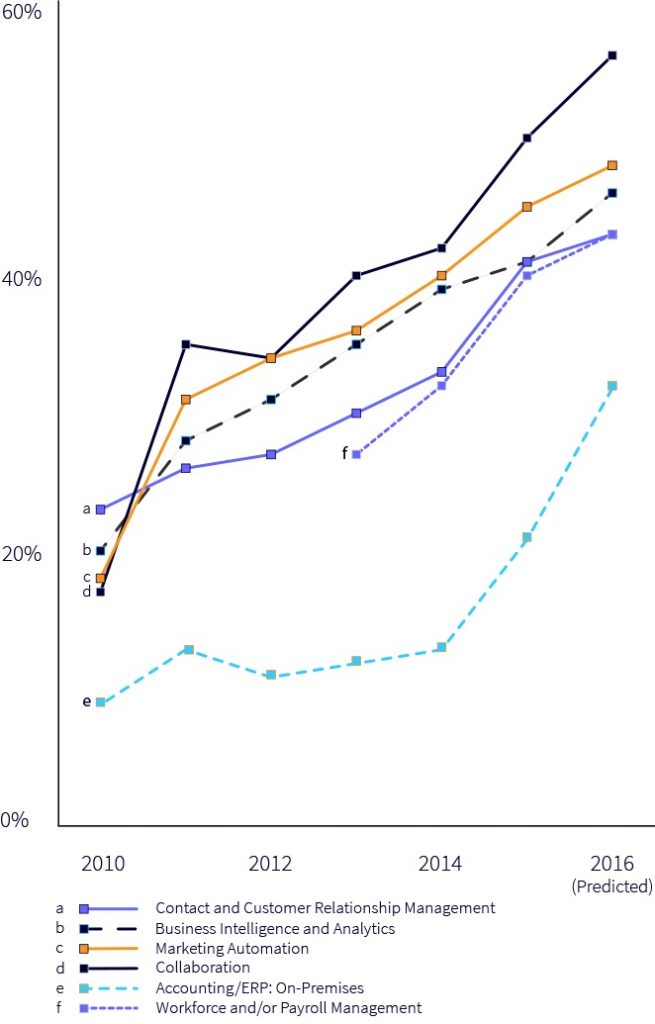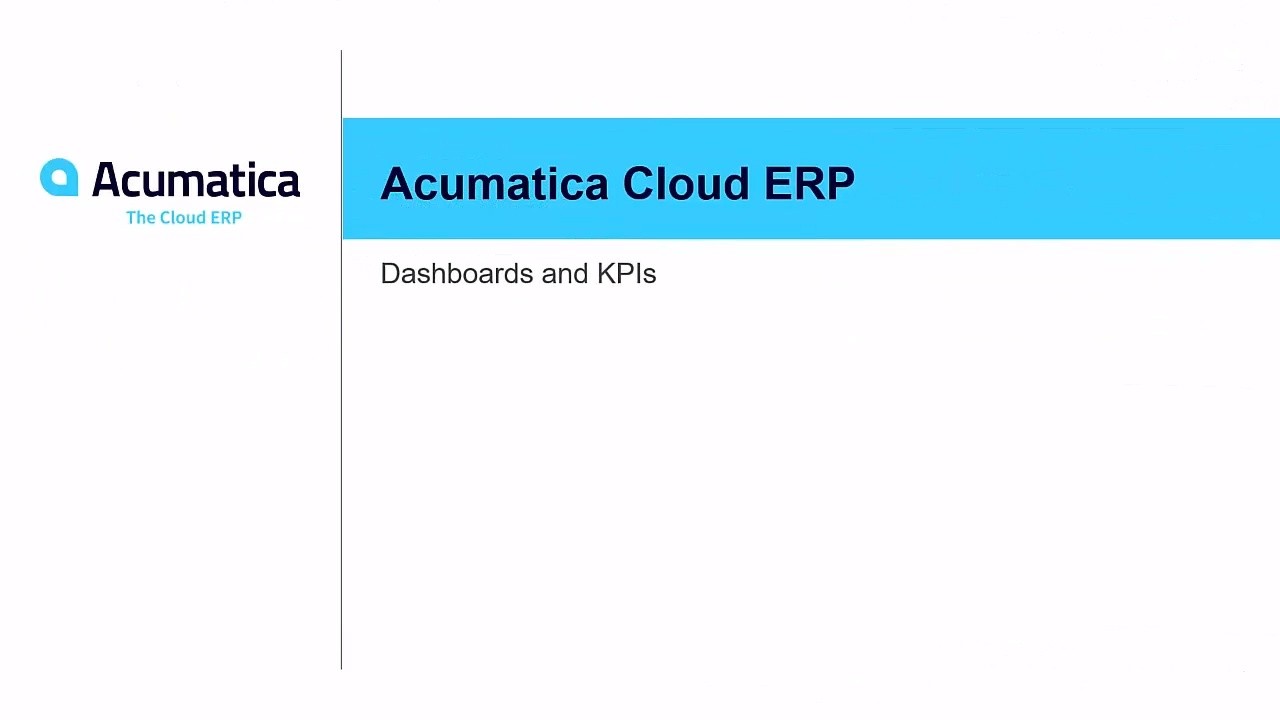Why Cloud Computing is the Future for ERP Implementations?
We are in the midst of a radical change in technology preferences. IDC, a premier global provider of market intelligence, wrote that “Cloud Apps are key to supporting growth of small and medium businesses.” IDC calls the current environment the “IT Industry’s 3rd Platform for Innovation and Growth” and reports that this innovation stage is defined by “an explosion of innovation and value creation on top of the 3rd Platform’s Cloud, Mobile, Social and Big Data/Analytics Foundation.”
The Most Critical Period Yet:
The Innovation Stage
The “Innovation Stage” is defined by an explosion of innovation and value creation on top of the 3rd platforms cloud Mobile, Social, Big Data, and Analytics Foundation.
Businesses are Changing:
- How they engage with customers
- The speed at which they deliver products and services
- How they innovate
- The reliability of their operations
- Their overall resiliency

Why Do ERP Implementations Fail?
Choosing to upgrade or purchase cloud-based ERP technology is a necessary step for growing your business in today’s competitive market. Once you select the ERP system software and provider, the specter of ERP implementations – and the possibility of failure – becomes a factor. The good news is that the right cloud-based ERP provider along with the proper steps can alleviate failure and point your business in the direction of growth.
The Rapid Shift to the Cloud
In 2009, 80% of midmarket companies preferred an Enterprise Resource Planning (ERP) solution installed on premises, but that has changed drastically.
In the 2014 report “The Pros and Cons of SaaS ERP”, Mint Jutras wrote about the decline in the willingness of companies to consider traditional on-premises deployments. That decline began in 2011, and between 2011 and 2013 that percentage “literally dropped off a cliff”. Most SMB’s are now considering Cloud ERP applications.
The market research firm Aberdeen found that the “Best-in-Class midmarket organizations” representing the top 20% of companies surveyed were over twice as likely to have a cloud ERP solution. Clearly, the top midmarket performers have already made the move to the cloud for their ERP applications.
SMB Group, an analyst firm that specializes in small- and medium-sized businesses, issued a 2016 Report on “The Business-Technology Performance Connection for SMBs”.
Since 2010, the adoption of cloud computing has been on the rise in the SMB space, with more and more businesses seeing it as the most cost-effective, flexible, and fastest way to deploy and support their IT infrastructure and business applications without the need for significant capital investments and staffing increases.
Listen to the recording of a recent webinar as the SMB industry analyst presents the finding of their “The Business-Technology Performance Connection” report.
Business Reasons to Make the Move to Cloud Computing
For many small- and medium-sized businesses, the move to the cloud is done for obvious business reasons—the first one being lower up-front costs.
But another significant benefit is speed to implementation. A 2014 survey by the industry analyst firm Mint Jutras reported that “respondents with SaaS implementations reached their first go-live milestone 19% faster than those with on-premise solutions”. Both of these benefits are possible because cloud computing eliminates the need for purchasing and installing hardware and software.
Other business benefits include:
- Anywhere, anytime access to information by staff, customers and partners, since all applications are designed to run on mobile devices
- No staff time required to maintain or upgrade hardware as the company grows
- Most current functionality is always available since the cloud vendor maintains and updates the software
- The SaaS cloud vendor will typically have the best security available, a fact which has been verified by the news of data security primarily affecting on-premises systems in large and medium sized companies
- Data is safely backed up with a disaster recovery plan
- True cloud applications are designed with an intuitive user interface to speed time to productivity
Remember, not every ERP Cloud provider is True Cloud and can offer all these benefits.
To help in differentiating the choices, read the SMB group eBook called “Clearing the ERP Clouds”. Use this eBook to help guide you.

Success with the cloud
Because cloud solutions have been used to run ERP applications for some time now, the industry has access to documented results of the benefits.
One example is from the report “Improve your Midmarket Business Operations with Cloud Applications” by the Aberdeen Group:
The benefits of the Cloud provide tangible business benefits in operating costs, schedule compliance, and on-time delivery”. Aberdeen reported that the average improvement of profitability over the past two years for midmarket companies that are not in the Cloud was 9% profitability improvement. However, midmarket companies who were Cloud-enabled reported a 17% improvement in profitability over the past two years. This is a staggering 8 point difference. By providing the technology tools their people needed, these market leaders saw an ROI that improved their overall bottom line.
Also in that report they wrote about integration with other technologies:
“For midmarket organizations, the flexibility that cloud environments provide actually enables these organizations to implement more technology that can improve processes across the organization. Results include
- 13% more likely to have Customer Relationship Management
- 43% more likely to have Business Analytics”
Finally, they touched on one of the most important areas for a small or mid-sized business, keeping track of business activities and visibility across the organization:
“Since a cloud solution is accessible to employees no matter where they are, it is easier to share the functionality included in the solutions. Ultimately, this improves visibility, impacts collaboration, and enables efficiency and agility. In fact, midmarket organizations with cloud solutions are
- 41% more likely to have real-time visibility in to the status of all processes
- 47% more likely to have automated notifications empowering business leaders to react immediately”
Improvements will be made in a company whether they have cloud ERP or traditional systems; however, cloud implementations result in significant ROI improvements over on-premises ERP systems. A few examples include:
- 8% improvement in operational costs as a result of cloud ERP
- 8% improvement in profitability as a result of cloud ERP

